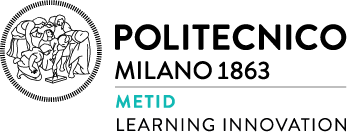
Blog #5

MOOCs and digitalisation of energy
Massive Open Online Courses (MOOCs)
Massive Open Online Courses (MOOCs) emerge in the 1st decade of the 21st century as a form of open education: an umbrella term that indicates a mode of realising education, often enabled by digital technologies, aiming to widen access and participation to everyone by removing barriers and making learning accessible, abundant, and customisable for all (JRC 2016). MOOCs provide free access to an unprecedented quantity of educational opportunities on platforms such as:
- US-based Coursera and edX, offering courses of HEIs and other kind of organisations from all over the world.
- the UK-based FutureLearn, owned by The Open University and the SEEK Group, whose partners include many of the best UK and international universities, as well as organisations such as the British Library and the British Museum;
- the iberoamerican Miriada X by Telefónica;
- FUN – France Université Numérique, the French national MOOC platform backed by the National Ministry of Education.
2012 is hailed as “The Year of the MOOC” by the New York Times and in 2014, Porto Declaration on European MOOCs calls upon all to embrace the possibilities that open education offers the knowledge Society. Furthermore, it stresses the need for stronger collaboration in Europe.

Recent developments and Covid19 crisis
Recent developments in the MOOC sector include:
- offering courses and course series for education, training and upskilling, like in the case of Futurelearn Microcredentials and programs, designed to build in-demand career skills, with the opportunity to earn a professional or academic credential;
- bridging non-formal and formal education, like in the case of the Common Microcredential Framework (CMF), developed by the European MOOC Consortium consisting of FutureLearn, FUN, MiríadaX, EduOpen (Italy), and OpenupEd/ the European Association of Distance Teaching Universities (EADTU), that uses the European Qualification Framework to provide courses that award academic credit: in France the first 2 courses of this initiative, named GRADEO, are offered by the École supérieure des technologies industrielles in partnership with Oracle.
As face-to-face instruction moves online due to COVID-19 crisis, MOOCs are used to support this transition:
- Coursera Campus Response Initiative, launched in March 2020, offers any college or university impacted by COVID-19 free access to its course catalogue through Coursera for Campus (in September 2020, Coursera publishes a report summarizing the impact of their response to the pandemic https://about.coursera.org/press/wp-content/uploads/2020/09/Coursera-Impact-Report-2020.pdf
- some archived MOOCs on FUN are re-opened as browsable (archivés ouverts) courses, ensuring permanent access to course content.
MOOCs and digitalisation of energy
EDDIE is going to develop several online courses: to benchmark their requirements against current educational standards, we explore the current offering of MOOCs and open online courses in the topics at the intersection of energy and digital technology, such as smart grids, energy transition and sustainable energy, with a special focus on instruction for professionals; the output of this activity is report including, but not limited to the main global and European MOOC providers.
Some examples of MOOCs:
- New Energy Technologies: Energy Transition and Sustainable Development Grenoble Ecole de Management on FutureLearn, for both students in the areas of electrical networks, electrical engineering or smart grids, and and professionals, especially those working in the energy industry
- SMARTEL MOOC: SMARTEL Erasmus+ project for electricians that need to combine technical proficiency with digital and environmental skills to perform the installation and maintenance of smart metering and energy efficiency home automation systems
- Smart Grids for Smart Cities: Towards Zero Emissions, offered by EIT InnoEnergy (with Homework and Smartgrid.cat), of interest for citizens with environmental concerns, for employees of large companies wanting to raise the environmental awareness of their organisations and for employees of medium or large city councils, to understand how data and smart grids can create more efficient and sustainable cities.
The exploration of the MOOC offering in the domain of energy digitalisation provides food for thought in terms of fine-tuning relevant topics, main target audience and recognition of learning of the EDDIE courses.


